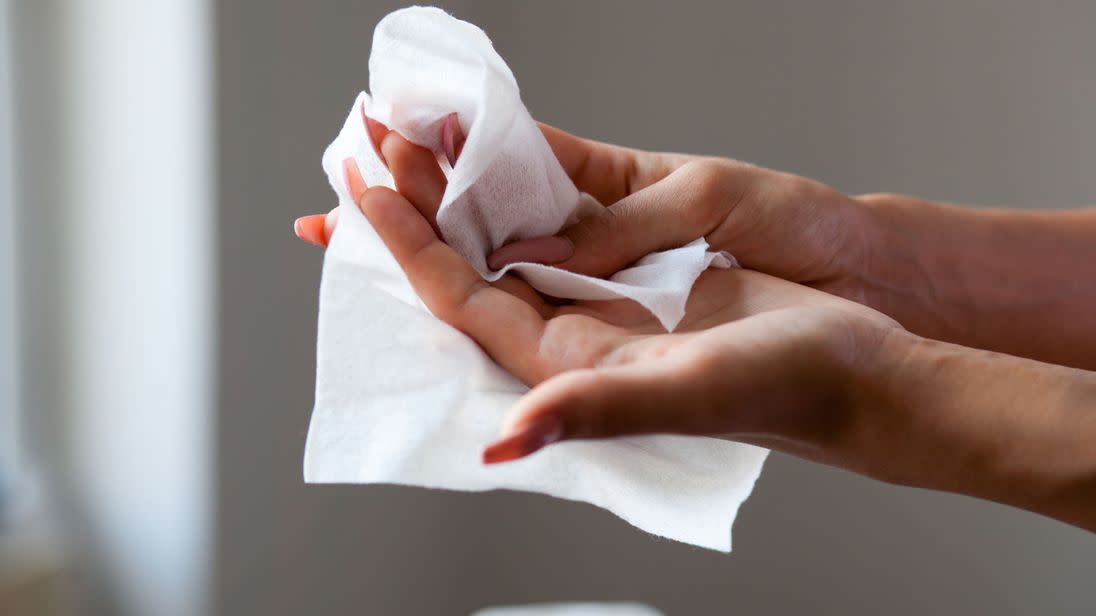Thousands of 'unflushable' wet wipes found on one stretch of the Thames shore

A record number of "unflushable" wet wipes were found in just one part of the River Thames as part of a clean up of the banks.
More than 5,400 were removed from a 116 square-metre section of the shore in Barnes, below Hammersmith Bridge, the most ever found in one place, according to waterways charity Thames21.
It has warned that wet wipes are collecting in such a way that they are changing the shape of the riverbed.
Unlike plastic bottles, heavy wipes sink, so the extent of the problem is harder to see.
However, when the tide is out, it is easier to see the scale of the problem, with mounds piling up as they intertwine with sediment and twigs, and are covered by mud.

Debbie Leach, chief executive of Thames21, said: "The sheer quantity of these wet wipes shows the urgency of this problem.
"As a country, action is being taken about other products which contain plastic, such as bottles and cotton buds.
"We now need to widen our attention to include wet wipes and sanitary products which contain plastic and are being flushed into our rivers."
Wet wipes end up in rivers when sewers push out the "unflushables" around once a week, because they become overloaded or break down.
Wipes contain plastic and contribute to the global microplastics problem as they break down, being ingested by marine life.
A recent study cited by Thames21 indicated that 70% of flounder in the Thames had plastic in their bodies.
As people continue to flush wet wipes, the charity said there should be more done to alert the public about the dangers they cause to marine like.
Ms Leach added: "This data shows that much more public information is needed, so that people understand the importance of 'Bin it, Don't flush it' and also the importance of improving the labelling on wet wipe packets."
:: Sky's Ocean Rescue campaign encourages people to reduce their single-use plastics. You can find out more about the campaign and how to get involved at www.skyoceanrescue.com

 Yahoo News
Yahoo News 
